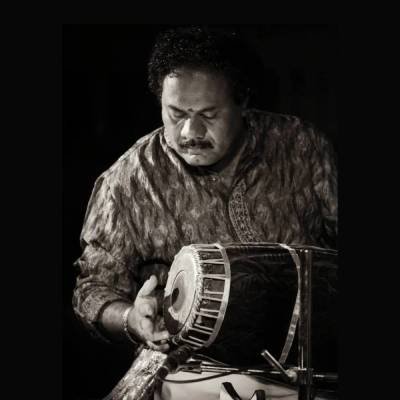Singing for Musical Theatre: Skills You Need to Develop
Musical theatre is all about bringing characters to life with song, and it demands a special blend of talents. Whether you’re a complete beginner or an experienced vocalist, mastering musical theatre singing involves more than just a pretty voice. You’ll need acting chops, dance moves, and stage presence too. Think of Broadway star Caissie Levy at the curtain call of Next to Normal. She’s showing off the kind of energy and vocal power musical performers strive for. Luckily, modern singers can build those skills at their own pace: online singing lessons and tutorials offer flexible ways to practice vocal techniques, ear training, and even acting exercises from home. This blog will dive into the origins of musical theatre and cover all the skills you should develop to sing in musicals, plus routines and tips to turn you into a stage-ready performer.
Musical theatre isn’t a new thing; its roots go way back. In fact, ancient Greek theatre (5th century BC) is often cited as the first form of musical theatre, where choral songs were woven into plays about gods and heroes. Over the centuries this art form evolved through operettas, music halls, vaudeville, burlesque, and more. By the Golden Age of Broadway (1940s–60s), shows by Rodgers & Hammerstein, Cole Porter and others fully integrated story, song, and dance into one show. Today’s musicals incorporate even rock, pop, and film influences think Disney’s stage hits or jukebox musicals, but they all share a lineage that began in those early theatres. Understanding this history helps us appreciate why performing in musical theatre is such a demanding and rich craft.
Skills Required for Musical Theatre Singing
Musical theatre performers are often called “triple threats” you really do need it all. At the very least, you must sing well, but that’s just the beginning. As one voice coach sums it up, “Singing, acting, dancing, and memorising lines are just some of the many skills necessary to succeed in the demanding art form of musical theatre.” That means you’ll work on singing technique and musicianship plus acting skills and physical staging. Here are some of the key vocal and performance skills to develop:
- Vocal Technique & Support: You need good breath control, a flexible range, and healthy technique. Musical theatre singing often uses a speech-like production – think a slightly higher larynx and bright, forward vowels – combined with strong breath support.This lets you belt out high notes (especially in belting roles) and be heard over the orchestra. For example, female characters often use chest-dominant tones (to achieve that rich belt sound) and may employ less vibrato for clarity.Learning diaphragmatic breathing (inhaling deeply so your belly expands) and then engaging your core muscles as you sing will give you power and stamina.In short: practice breathing exercises and scales to expand your range and support every phrase.
- Pitch, Ear Training, and Musicianship: Musical theatre songs can be rhythmically tricky, so a good inner ear is crucial. Many pros take ear-training lessons or practice sight-singing so they can learn new songs fast. For instance, common advice is to train your ear on intervals and chords so you can pick up songs by ear or read new material on the fly. Strong rhythmic sense is also vital composers like Jason Robert Brown or Andrew Lippa write complex rhythms, and studying those songs requires “excellent rhythmic skills and strong ears”. In practice, this might mean drilling do- re-mi scales and sight-reading exercises as part of your routine (resources like solfège apps or online lessons can help).
- Diction & Storytelling: Clear lyrics and acting through song are musical theatre hallmarks. You’ll need to enunciate so the audience understands the plot. This ties into acting – use dynamics (soft vs. loud) and phrasing to convey emotion. Voice teachers talk about “articulation” basically where and how you shape words while singing. Combine that with facial expressions and body language to really sell a character’s story. (Tip: practice singing a ballad as if you were delivering dramatic dialogue, or try telling a story with just your singing voice.)
- Acting & Stage Presence: Songs in musicals are actually mini-soliloquies or conversations. You must be believable as a character. Take acting classes, practice projecting emotions, and learn to memorise lyrics and moves quickly. And never underestimate confidence: even pros get stage fright, but performing regularly builds “self-esteem” and a “can-do” mindset. In other words, fake it till you make it feel the nerves but channel them into energy on stage.
- Dance & Movement: Many musical theatre roles demand some dance or at least choreographed movement. You don’t have to be a professional dancer (unless it’s a dance-heavy show), but having basic rhythm and body awareness helps your performance look polished. Even stationary singing should use posture and gestures that fit the song. If a role does involve dancing, you’ll train so that your breathing and core support stay solid – “maintain your lower core support while dancing and simultaneously release the muscles in the midriff… for singing”. In short, work on flexibility and stamina so your voice stays supported even while your body is moving.
- Vocal Health & Warm-Ups: Finally, taking care of your instrument (your voice) is a skill in itself. Always warm up before rehearsals or performances to strengthen and protect your vocal cords. A warm-up routine (lip trills, hums, slides, gentle scales) helps prevent strain. Leeds Conservatoire advises 10–15 minutes of daily vocal exercises, focusing especially on any weak spots. And cool down after heavy singing to relax the voice. Good habits – staying hydrated, avoiding yelling, getting sleep keep your performance-ready.
In short, musical theatre singing is about blending singing with acting and movement. You’ll work on technical foundations (breath, pitch, diction) and on performance flair. Luckily, targeted training (even through online singing lessons) can guide you on both fronts.
Practice Routine & Techniques
How do you turn these skills into habits? The secret is a structured routine and lots of focused practice. Here are some tips and steps from vocal coaches:
1. Schedule Your Sessions: Set specific practice blocks in your calendar and stick to them.Whether it’s daily or a few times a week, consistency is key. Treat practice like an appointment: it’s tempting to “find time later,” but blocking it prevents skipping.
2. Warm Up Thoroughly: Never dive into songs cold. Always start with breathing exercises and gentle vocalises. For example, lip trills, humming, or sirens (gliding through your range) wake up your voice. This both strengthens your instrument and protects it. A Backstage guide even says: “Each session should consist of a physical and vocal warmup, followed by a few vocalises… some work on your rep, and a cool down.”. So spend 5–10 minutes on warm-ups focusing on breath and free tone.
3. Work on Repertoire (Songs): Pick a few musical theatre songs at a time and break them down. Practice trouble spots – tough high notes, fast lyrics, or tricky intervals – by looping them slowly. Use a piano or backing track to match pitch. Take notes on the sheet music or on your phone: mark where to raise or lower vowel sounds, where to emphasize emotion, etc. (Backstage advice: “It’s time to make your music messy” – scribble notes, highlight phrases, make the song your own.) Sing through whole numbers once they feel solid. Remember to include songs just for fun too – that keeps you motivated. Let yourself belt a favourite tune at the end of practice as a reward (and who knows, it might become a showcase piece!).
4. Include Targeted Exercises: Spend part of the session on drills. This could be scale practice, interval jumps, agility drills, or diction exercises. For example, practice singing up and down the major scale, or do staccato drills on consonants. Use resources from online singing lessons or apps – many courses include exercise videos. Ear training is also important: spend a few minutes on ear-training apps or sight-singing so you sharpen that inner ear (you’ll thank yourself when tackling new musical songs!).
5. Get Feedback: Record yourself occasionally. Listening back is eye-opening (or ear- opening!). You might notice pitch wobbles or words you mumbled. If possible, take lessons with a vocal coach who can correct technique and give you specific exercises. And remember, good online singing lessons can substitute when in-person isn’t possible – a structured online course can keep your progress on track even without weekly private lessons.
6. Cool Down: End each session with gentle humming or light singing in your lower register to relax the voice. Just like warming up, cooling down is a healthy habit to avoid fatigue or strain.
7. Repeat and Reflect: At the end of a session, jot down what worked and what to improve. Plan what to tackle next time. (Backstage suggests spending 5 minutes planning the next session – it keeps you focused and goal-driven) Over time you’ll see progress in things like your range, confidence on stage, or clarity in diction.
Throughout this practice, consistency and smart technique trump raw hours. Even 20 minutes a day of targeted practice can yield big gains. And online tools – video tutorials, karaoke tracks, virtual piano apps – make it easy to train on your schedule. As one vocal coach notes, “online tools can be great for a singer… [and a] good singing course can be a tool to keep your vocal progress on track.”. So mix in online lessons or courses that guide you through the basics (breath support, scales, stage exercises) alongside your self-practice.
Famous Musical Theatre Singers & Influencers
To see these skills in action, look at the stars of musical theatre history. Learning about their careers can inspire you and give clues to what works. Here are just a few legends:
- Ethel Merman (1908–1984): Dubbed “the undisputed First Lady of the musical comedy stage”, Merman had a powerhouse belt voice and introduced numerous Broadway standards. She originated roles in Anything Goes, Annie Get Your Gun, and Gypsy, and her booming delivery made hits like “There’s No Business Like Show Business” legendary. She proved that a strong, distinct vocal style and stage presence can define an era of theatre.
- Julie Andrews (born 1935): A classic musical star, Andrews made waves on Broadway (Tony-nominated as Eliza in My Fair Lady) and then on film, creating the beloved characters Mary Poppins and Maria in The Sound of Music. Her clear, agile soprano and perfect diction are textbook for any musical singer. She shows the power of versatility – equally comfortable in quirky comedies or heartfelt ballads.
- Elaine Paige (born 1948): Often called “the First Lady of British Musical Theatre”, Paige originated roles like Eva Perón in Evita and Grizabella in Cats. Her longevity and consistency (even hosting a BBC radio show about theatre) demonstrate professionalism. A lesson from Elaine: mastering one role (and its recording) can make you a household name – she had a hit single with “Memory” from Cats.
- Idina Menzel (born 1971): In modern Broadway history, Menzel is a standout. She won the Tony Award for originating Elphaba in Wicked (2004)Her big belt voice and emotional delivery in “Defying Gravity” inspired countless musical wannabes. Later, as the voice of Elsa in Disney’s Frozen, her recording “Let It Go” became a global smash – showing how a strong musical-theatre-trained voice can cross over into pop culture.
- Audra McDonald (born 1970): McDonald has six Tony Awards – more acting Tonys than anyone else. She’s performed in operas and musicals alike (winning for Carousel, Ragtime, Porgy and Bess, etc.). Her example teaches precision: perfect pitch, emotive singing, and versatility (musicals to drama) can earn a performer historic acclaim.
- Lea Salonga (born 1971): A trailblazer for Asian performers, Salonga won the Tony for Best Actress in a Musical for Miss Saigon (lead role Kim)She also played Éponine/Fantine in Les Misérablesand provided the singing voice for Disney’s Jasmine (Aladdin) and Mulan. Her journey shows the importance of strong vocal training from a young age (she began singing professionally as a child) and versatility in style – from Broadway to pop soundtracks.
These artists (among many others like Barbra Streisand, Julie Andrews, Lin-Manuel Miranda, and Broadway greats) highlight different paths to success. What they share is dedication to craft. They studied diligently, took voice lessons (often with Broadway-savvy coaches), and performed relentlessly. Aspiring singers can learn from their careers – for instance, if Elaine Paige could break through from London’s West End to Broadway, so can you with the right skills and practice. And remember, every one of them likely used learning resources (studios, coaches, and yes, modern performers use online singing lessons too) to hone their voices for the stage.
Conclusion
Singing for musical theatre is a tall order you’re juggling the voice of a singer with the heart of an actor and the stamina of a dancer. But with patience and the right approach, you can develop those skills step by step. Start with solid vocal technique (breath support, warm-ups) and build on it with acting lessons and performance practice. Make a routine of rehearsing songs, taking lessons (in person or online), and challenging yourself gradually with harder repertoire. Above all, have fun with it: enjoy your favourite musical numbers, try out new vocal exercises, and appreciate every little improvement.
Musical theatre is all about storytelling through song. Keep your goals in mind, whether it’s hitting a crystal-clear belt note or expressing a character’s raw emotion. Join community choirs or school productions if you can – live performance experience is invaluable. And use technology to your advantage: online singing lessons and tutorials can provide feedback, new exercises, and even virtual masterclasses from top coaches.
Every great star started somewhere. Maybe your warm-up sounds off-key now, but remember Ethel Merman once sounded like an amateur too! With commitment, you’ll get there. So keep singing, keep dancing in your mirror, and keep learning. The stage is waiting for your voice.


















